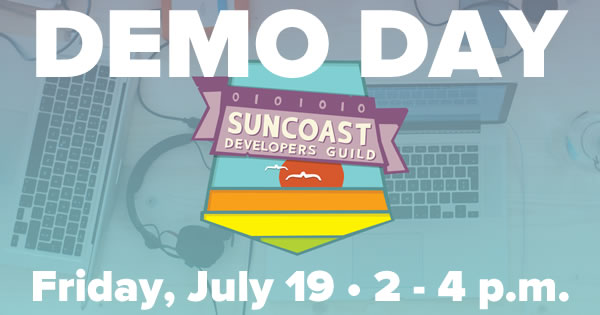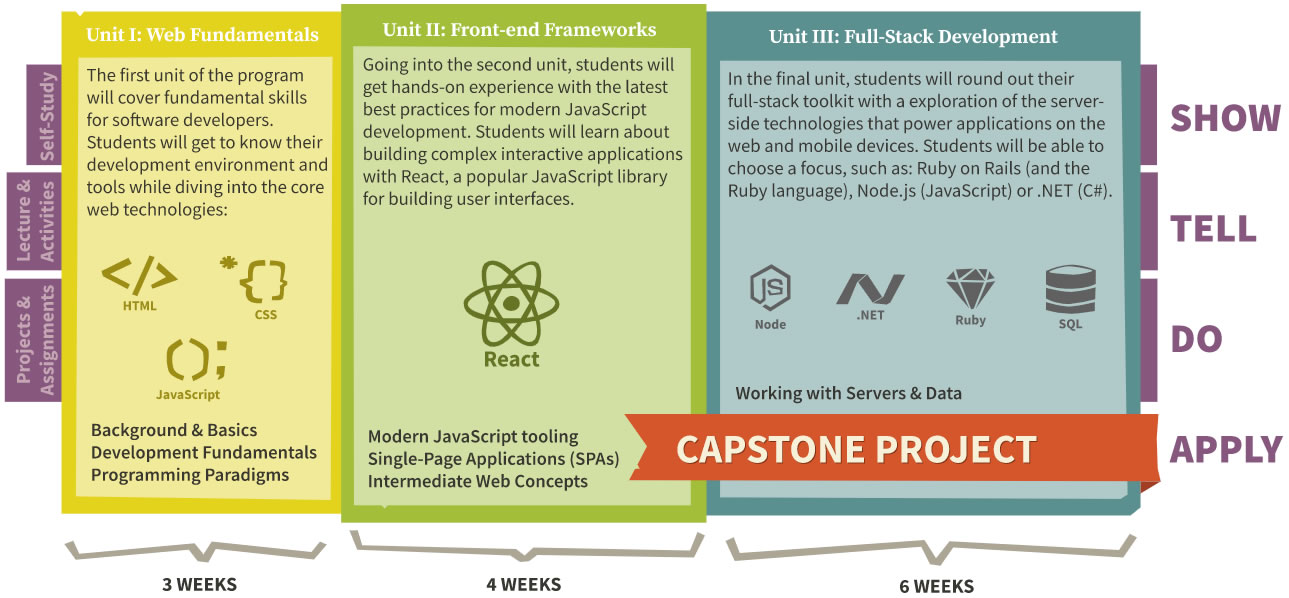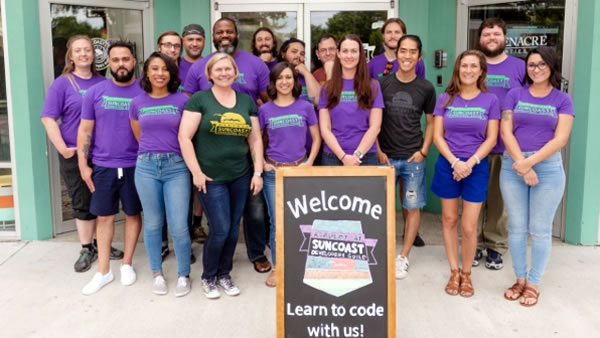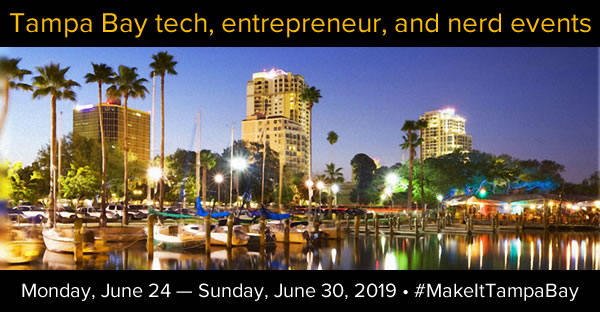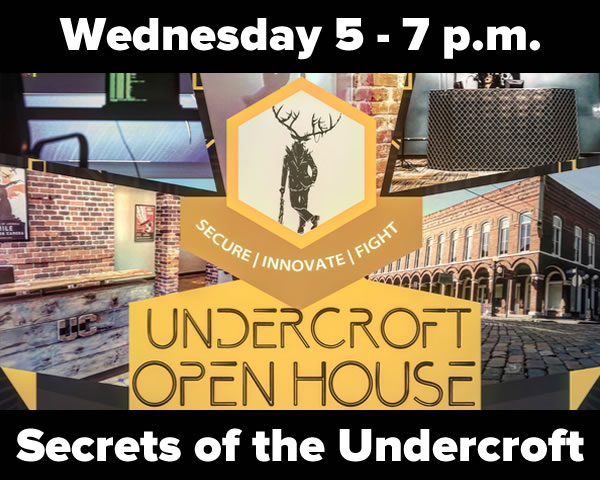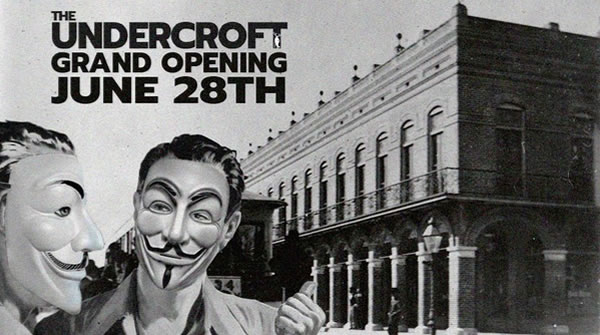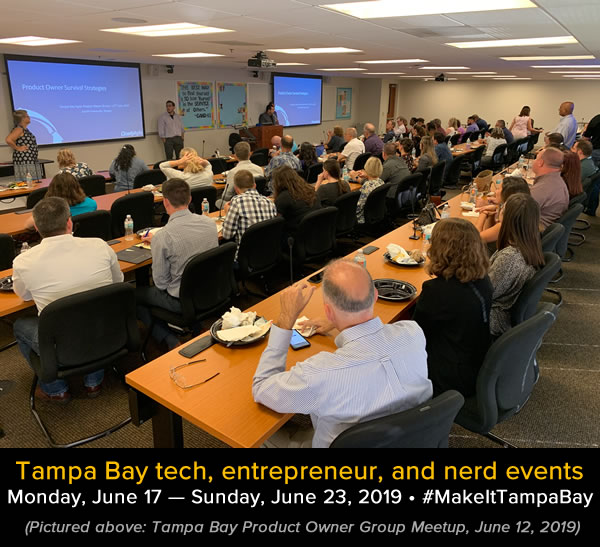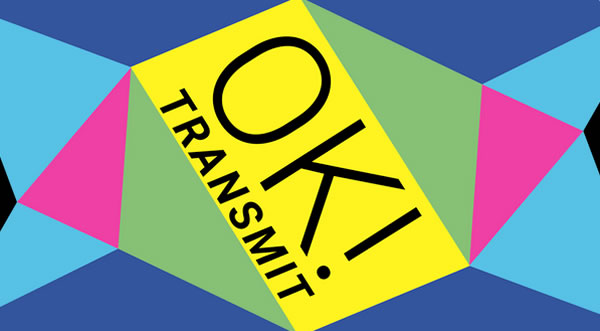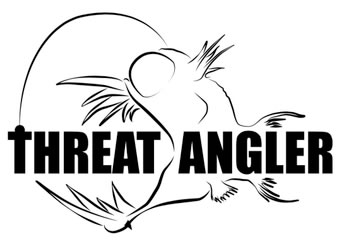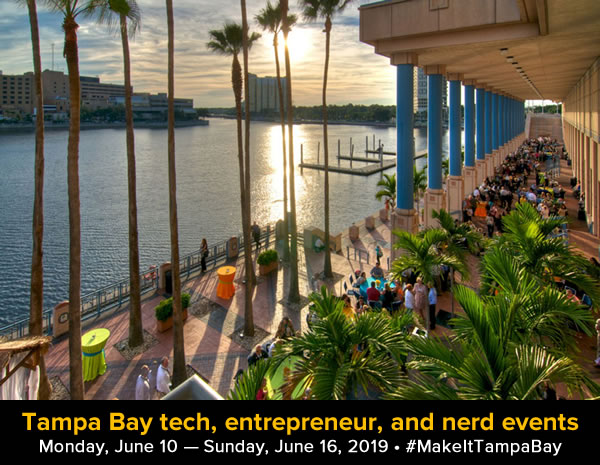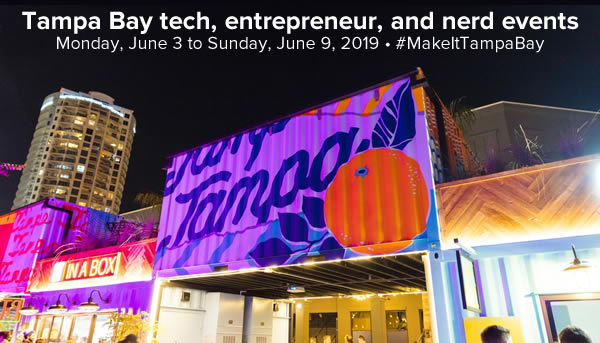Every week, I compile a list of events for developers, technologists, tech entrepreneurs, and nerds in and around the Tampa Bay area. We’ve got a lot of events going on this week, and here they are!
This weekly list is posted as a voluntary service to the Tampa tech community. With the notable exceptions of Tampa iOS Meetup and Coders, Creatives and Craft Beer — both of which I run — most of this information comes from Meetup.com, EventBrite, and other local event announcement sites. I can’t guarantee the accuracy of the dates and times listed here; if you want to be absolutely sure that the event you’re interested in is actually taking place, please contact the organizers!
Monday, July 8
- Tampa SEO & Internet Marketing Meetup with Steve Scott — 5-Day SEO Mastery Training Workshop @ 11928 Sheldon Rd, 8:30 AM to 5:00 PM
- West Coast Photo Group — SIGNS CHALLENGE ON-LINE ONLY @ 10:00 AM to 12:00 PM
- America’s TriviAddiction — ROOKIES SPORTS BAR – SPRING HILL – LIVE TEAM TRIVIA !!! @ 6:00 PM to 8:00 PM
- Florida Center for Creative Photography — FREE Lightroom Class at Ross Norton Community Center — Class 7of 8 @ Ross Norton Recreation Complex, 6:30 PM to 8:30 PM
- Suncoast Developers Guild Jr: Intro to HTML/CSS (ages 8-12) @ Suncoast Developers Guild, 6:30 PM to 8:30 PM
- Wesley Chapel Speaks Toastmasters @ Nissan of Wesley Chapel, 6:30 PM to 9:30 PM
- Brandon – Sarasota – Bradenton Trivia & Quiz Meetup — Off the Wagon Kitchen & Brewery Smartphone Trivia Game Show @ 6:30 PM to 8:00 PM
- Cool ‘n Confident Toastmasters @ SPC – St. Petersburg/Gibbs Campus, 6:30 PM to 8:00 PM
- Tampa Bay Japanese Language Classes — *New!* Beginner Japanese Classes in St. Pete/Pinellas Park: Lesson 13 @ Kitchen Table Games, 7:00 PM to 9:00 PM
- Brandon WordPress Meetup — TBA: Regular WordPress Meeting @ Bloomingdale Regional Public Library, 7:00 PM to 9:00 PM
- America’s TriviAddiction — 3 DAUGHTERS BREWING – ST. PETERSBURG – LIVE TEAM TRIVIA @ 7:00 PM to 9:00 PM
- Tampa Bay Thinkers — Political Ideologies: Are they changing, evolving? Going backward or forward? @ Carrollwood Cultural Center, 7:00 PM to 9:00 PM
- Agile Social — FREE Agile Workshop @ Paper Street Studios, 7:00 PM to 8:00 PM
- South Tampa Toastmasters @ Unity of Tampa, 7:00 PM to 8:15 PM
- Florida Center for Creative Photography — Lightroom After Hours — A Lightroom Q&A Session @ O’Keefe’s Family Restaurant, 8:45 PM to 9:45 PM
- Design for Communication — Top 5 Biz Social Media T!PS @ online, 10:00 PM to 10:35 PM
- Get Lit: A Drunken Book Club — Long Live Get Lit @ 11:59 PM
Tuesday, July 9
- Florida Center for Creative Photography — Coffee & Photography Meeting at The Portico in Tampa @ The Portico, 9:00 AM to 11:00 AM
- Bradenton JPI Photo Group — Sony Demo Days @ Johnson PhotoImaging, 10:00 AM to 5:00 PM
- Young Professionals of Tampa Bay Networking Group — Carrollwood Networking Lunch McAllisters Deli @ McAlister’s Deli, 11:30 AM to 1:00 PM
- Westshore Toastmasters @ FIVE Labs, 12:00 PM to 1:00 PM
- Brandon Boardgamers — Tuesday Night Gaming @ Cool Stuff Games, 5:00 PM to 8:00 PM
- Geekocracy! — Spider-man: Far From Home at AMC Veterans @ AMC Veterans 24, 5:45 PM to 7:45 PM
- Learn Cybersecurity Tampa — Beginner’s Intro to Capture The Flag @ SecureSet, 6:00 PM to 8:00 PM
- Weekly Open Make Night @ Tampa Hackerspace, 6:00 PM to 10:00 PM
- Coders, Creatives, and Craft Beer — Meetup meetup = new Meetup(); @ 7venth Sun Brewery, 6:30 PM to 9:00 PM
- Florida Podcasters Association General Meeting!!! @ IHop, 6:30 PM to 8:30 PM
- West Pasco Toastmasters Club #2824 — Weekly Meeting @ West Pasco Board of Realtors, 6:30 PM to 8:00 PM
- Game Club Tampa Meetup — Tuesday Nite Roleplayers (RPGs) [Full] @ Grand Arena of Mind Expansion, 6:30 PM to 10:30 PM
- America’s TriviAddiction — WESTSHORE PIZZA – BELLEAIR BLUFFS – LIVE TEAM TRIVIA !!! @ 6:30 PM to 8:30 PM
- America’s TriviAddiction — DAIQUIRI SHAK RAW BAR & GRILL – MADEIRA BEACH – LIVE TEAM TRIVIA @ 8:00 PM to 10:00 PM
- Brooksville Book Club Meetup — The Woman in the Window by A. J. Finn @ 7:00 PM to 9:00 PM
- Anime, Nerds and Geeks — Spider-Man: Far from Home – AMC $5 MOVIES @ 7:00 PM to 9:30 PM
- Florida Center for Creative Photography — Photo 101 – Ask Me Anything Related to Photography, Computers and Software @ O’Keefe’s Family Restaurant, 7:00 PM to 9:00 PM
- Code Katas — Let’s Do Some Fun Code Challenges! @ Suncoast Developers Guild, 7:00 PM to 10:00 PM
- St. Pete Beers ‘n Board Games Meetup for Young Adults @ Flying Boat Brewing Company, 7:00 PM to 10:00 PM
- Tampa Bay Blockchain Group — Trading Tuesday! @ Tampa Bay WaVE, 7:00 PM to 9:00 PM
- Suncoast Toastmasters Weekly Meeting @ Trinity Presbyterian Church, 7:00 PM to 8:30 PM
- Woodshop Safety (Members Only) @ Tampa Hackerspace, 7:15 PM to 9:15 PM
Wednesday, July 10
- Young Professionals of Tampa Bay Networking Group — Downtown St Pete Networking at the Hangar~ Wednesday Mornings @ The Hangar, 7:30 AM to 9:00 AM
- Open/FREE Coworking for Women Tech Entrepreneurs @ Tampa Bay WaVE, 9:00 AM to 8:00 PM
- 1 Million Cups St. Pete — GovLia / NOMADstudio @ St. Petersburg Greenhouse, 9:00 AM
- 1 Million Cups Tampa — Technologymagic / Progression The Movement / Riley Technology Solutions, Inc. @ Entrepreneur Collaborative Center, 9:00 AM
- Florida Center for Creative Photography — FCCP Coffee & Photography Meetup at O’Keefe’s Family Restaurant in Clearwater @ O’Keefe’s Family Restaurant, 9:15 AM to 11:15 AM
- Bradenton JPI Photo Group — Sony Demo Days @ Johnson PhotoImaging, 10:00 AM to 5:00 PM
- Tampa Bay DevOps — DevSecOps: Understanding Open Source Software risk in your applications @ Accenture, 11:30 AM to 12:30 PM
- Young Professionals of Tampa Bay Networking Group — Bernini of Ybor Lunch Networking @ Bernini (innovative italian cuisine), 11:30 AM to 1:00 PM
- Tampa Bay Blockchain Developers Meetup — Open code @ Tampa Bay Wave, 5:00 PM to 8:00 PM
- Tampa Bay Angular Meetup — Angular Meetup @ South University – Tampa, 6:00 PM to 7:30 PM
- Tampa Bay Business Intelligence and Data Analytics — Monthly Meeting: Azure Data Factory v2 Data Flows @ AgileThought, Inc, 6:00 PM to 8:00 PM
- Network After Work Tampa – Networking Events — Pro Speed Networking by Network After Work Tampa @ Industrious Tampa, 6:00 PM to 8:00 PM
- Nerd Night Out — Beer and Board Game Night St. Pete @ Avid Brew Co., 6:00 PM to 10:00 PM
- Learn to Code | Thinkful Tampa — Getting Started in Tech @ Tampa Bay Wave, 6:30 PM to 8:00 PM
- Tampa Software QA and Testing Meetup — Commercial vs open-source: How to choose the best test automation tools @ Sogeti Tampa, 6:00 PM to 8:00 PM
- Lakeland WordPress Meetup Group — Woocommerce 101 – A Guide to Running an eCommerce Shop with WordPress @ Catapult Lakeland, 6:30 PM to 8:00 PM
- Tampa Bay Azure User Group — Containerizing Legacy Applications on Azure @ Microsoft Corporation, 6:30 PM to 8:30 PM
- Tampa Writers Alliance Critique Group @ Barnes & Noble Carrollwood, 6:30 PM to 8:30 PM
- Suncoast Developers Group — Open Code @ Suncoast Developers Group, 7:00 PM to 9:00 PM
- America’s TriviAddiction — 3 DAUGHTERS BREWING – ST. PETE – SPECIAL PIXAR/DREAMWORKS THEMED TRIVIA !!! @ 7:00 PM to 9:00 PM
- I Love Marketing! – Let’s talk about using marketing to grow your business @ Winter Haven Gardens Inn & Banquets Center, 7:00 PM to 9:00 PM
- Introduction to Fusion 360 @ Tampa Hackerspace, 7:00 PM to 10:00 PM
- Nerdbrew Events — Games & Grog @ Peabody’s!, 7:00 PM to 11:00 PM
- Suncoast Linux Users Group @ New HDR Location, 7:00 PM to 9:00 PM
- Tampa Bay Inventors Council – www.tbic.us Weekly Meetup @ 2212 University Square Mall, 7:00 PM to 9:00 PM
- Tampa Bay Bitcoin — Bitcoin Cash Meetup @ 81Bay Brewing Company, 7:00 PM to 9:00 PM
- Women in Linux — Understanding Linux @ 7:00 PM to 9:00 PM
- Carrollwood Toastmasters @ Jimmie B. Keel Regional Library, 7:00 PM to 8:30 PM
Thursday, July 11
- Tampa Bay Connections — MELLOW MUSHROOM THURSDAY’S NETWORKING LUNCH @ Mellow Mushroom, 11:30 AM to 1:00 PM
- Tech4Good Tampa — Webinar – How to get results from Google Ad Grants @ Webinar/Online, 12:00 PM to 12:45 PM
- Tampa Otaku — MetroCon Year 17 @ Tampa Convention Center, Thursday 1:00 PM to Sunday 6:00 PM
- SIP Night Tampa — Coppertail Brewing Co. SIP Night @ Coppertail Brewing Co, 4:00 PM to 8:00 PM
- Going Solo (Single) Entrepreneurs Tampa Bay — Member meet and greet @ 5:30 PM to 8:30 PM
- Brandon Boardgamers — Let’s Game on Thursdays @ Panera Bread, 5:30 PM to 9:30 PM
- Lean Beer for All Things Agile (St Petersburg) @ Pour Tap Room, 6:00 PM to 7:30 PM
- Entrepreneur Social Club [tm] at NOVA 535 @ Nova 535, 6:00 PM to 8:00 PM
- America’s TriviAddiction — CRESCENT OAKS COUNTRY CLUB – TARPON SPRINGS – LIVE TEAM TRIVIA !!! @ 6:00 PM to 8:00 PM
- America’s TriviAddiction — CAPTAIN’S CORNER – BROOKSVILLE – LIVE TEAM TRIVIA !!! @ 6:00 PM to 8:00 PM
- Front-End Design Meetup @ Suncoast Developers Guild, 6:30 PM to 8:30 PM
- Beers and Board Games at Cueni Brewing in Dunedin (Every Thursday) @ Cueni Brewing Co., 6:30 PM to 10:00 PM
- America’s TriviAddiction — BAYSCAPE BISTRO AT HERITAGE ISLES – NEW TAMPA – LIVE TEAM TRIVIA !!! @ 6:30 PM to 8:30 PM
- Shopbot Safety and Usage (Members Only) @ Tampa Hackerspace West, 7:00 PM to 9:00 PM
- Books, Brews & Bags! — July – The Alice Network @ Silverking Brewing Co, 7:00 PM to 10:00 PM
- Sarasota Science, History, and Current Event Book Club — Ultimate Punishment by Scott Turow, Yuniku Endless Sushi & Hibachi, 7:00 PM to 9:00 PM
- A Read and A Restaurant — “A Gentleman in Moscow” dinner and discussion @ 7:00 PM to 9:00 PM
- Amazon Sellers in the Tampa Area — July Meetup @ O’Brien’s Irish Pub & Grill, 7:00 PM to 9:00 PM
- St Pete Business Builders Meetup @ Suncoast Developers Guild, 7:00 PM to 9:00 PM
- Brandon Writers — Barnes and Noble Meet, Greet, and Plan. @ Barnes and Noble, 7:00 PM to 8:00 PM
Friday, July 12
- Lean Coffee for All Things Agile (St Petersburg / Tyrone) @ Panera, 7:30 AM to 8:30 AM
- Lean Coffee for All Things Agile (Waters Location) @ Panera Bread, 7:30 AM to 8:30 AM
- Trinity Odessa Toastmasters @ Holiday Inn Express Trinity, 8:00 AM to 9:00 AM
- Introductory Meeting of Mastermind-The Boardroom @ 4350 St Ives Blvd, 9:00 AM to 10:30 AM
- Bradenton JPI Photo Group — Online Photo Contest – Night Landscape @ Johnson PhotoImaging, 10:00 AM to 6:00 PM
- Speaking and Presentation Skills Success — How do I get bookings? Solve it THEN Sell it! @ Sheryl’s place, 11:30 AM to 1:00 PM
- Young Professionals of Tampa Bay Networking Group — Friday Business Introductions @ 3 C’s Catering, 11:30 AM to 1:00 PM
- Tampa Bay Connections — Tampa Bay Networking Friday Lunch @ McAlister’s Deli, 11:30 AM to 1:00 PM
- Anime, Nerds & Geeks — METROCON 2019 @ 12:00 PM to 3:00 PM
- Tampa Professional Networking Meetup — Let’s Do Lunch and Network – St. Pete @ The Hangar, 12:00 PM to 1:00 PM
- Threat Angler — SecOps NOW! Meetup 2 @ 12:00 PM to 1:00 PM
- Young Professionals of Tampa Bay Networking Group — Friday Business Introductions JOIN us All Welcome @ Cafe Delanie, 12:30 PM to 2:00 PM
- Free Video Production Classes – TV/Internet — TV/Internet Video Production Class – Intro @ 12354 University Mall Ct, 2:00 PM to 4:00 PM
- Geekocracy! — Grown-up Night at Glazer Children’s Museum @ Glazer Children’s Museum, 6:00 PM to 8:00 PM
- Electronics Guild Meetup: Get to Know the New Steward @ Tampa Hackerspace, 7:00 PM to 9:00 PM
- Tampa Stoics — To Clarify the Mind (from “Meditations” by Marcus Aurelius) @ Panera Bread USF, 7:00 PM to 9:00 PM
- Mars Astronomy CLub — MARS: Spaceography – You’re not where you think you are by Dennis Farr. @ Perkins Restaurant, 7:30 PM to 9:00 PM
- Geekocracy! — “Disney Bounding” @ c.1949, 8:00 PM to 12:00 AM
Saturday, July 13
- Make THS Better Workday @ Tampa Hackerspace, 9:00 AM to 4:00 PM
- Digital Photo Artists — One-day intensive Portrait Masterclass @ 9:00 AM to 5:00 PM
- Brandon Drones Meetup — Open Fly @ 10:00 AM to 12:00 PM
- West Coast Photo Group — America Extreme Mud Wars 2019 @ 10:00 AM to 4:00 PM
- R-Ladies Tampa — Fun with Blogdown @ Entrepreneur Collaborative Center, 10:00 AM to 12:00 PM
- Tampa Bay Young Professionals Group — Explore the Florida Aquarium! @ 10:30 AM to 1:30 PM
- Geekocracy! — St Pete Beach Pot Luck @ 11:00 AM to 2:00 PM
- Nerd Night Out — NNO Book Club: Of Blood and Bone @ Babushka’s, 1:00 PM to 3:00 PM
- Tampa Women Entrepreneur Mastermind Event @ 1:00 PM to 4:30 PM
- Tampa Bay Area World of Darkness Meetup — Tampa Bay by Night – Changeling (First Session) @ University of South Florida, 6:00 PM to 11:30 PM
- Tampa Bay Young Professionals Group — NIGHT NATION RUN @ 7:00 PM to 10:00 PM
- Tampa Bay Photographic Arts Community — 2nd Saturday Art Walk @ Morean Arts Center, 7:00 PM to 10:00 PM
- Cannabis Entrepreneurs & Investors — Cannabis Social Networking-Hard Rock, Tampa @ Seminole Hard Rock Hotel & Casino, 7:00 PM to 10:00 PM
- Geekocracy! — Lets play pool at Baluka Billiards @ Baluka Billiards & Lounge, 8:00 PM to 11:00 PM
Sunday, July 14
- Geekocracy! — Half-day Charter Fishing Trip – The Queen Fleet out of Clearwater @ Queen Fleet Deep Sea Fishing, 7:30 AM to 12:30 PM
- Going Solo (Single) Entrepreneurs Tampa Bay — Discovery Series – Blush Tea and Coffee @ 9:30 AM to 11:00 AM
- Advanced Laser Cutter Skills (Members Only) @ Tampa Hackerspace, 1:00 PM to 3:00 PM
- Sew What? (Textile Arts & Crafts) @ Tampa Hackerspace, 5:30 PM to 8:30 PM
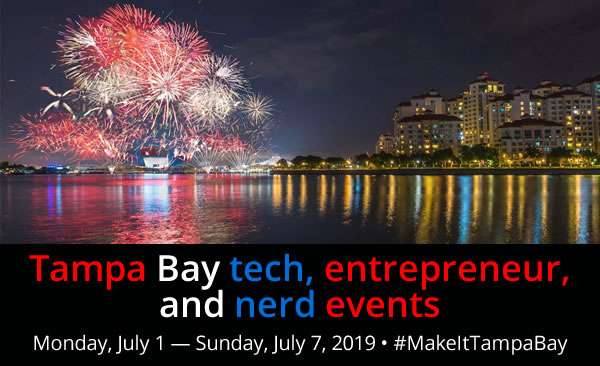
 Keep in mind that this is a holiday week, with the 4th of July happening on Thursday. Event announcement services like Meetup have a tendency to automatically schedule recurring events without regard for holidays. If the event you want to attend happens on or near the 4th, you might want to double-check with the organizers and confirm that the event is actually happening.
Keep in mind that this is a holiday week, with the 4th of July happening on Thursday. Event announcement services like Meetup have a tendency to automatically schedule recurring events without regard for holidays. If the event you want to attend happens on or near the 4th, you might want to double-check with the organizers and confirm that the event is actually happening.